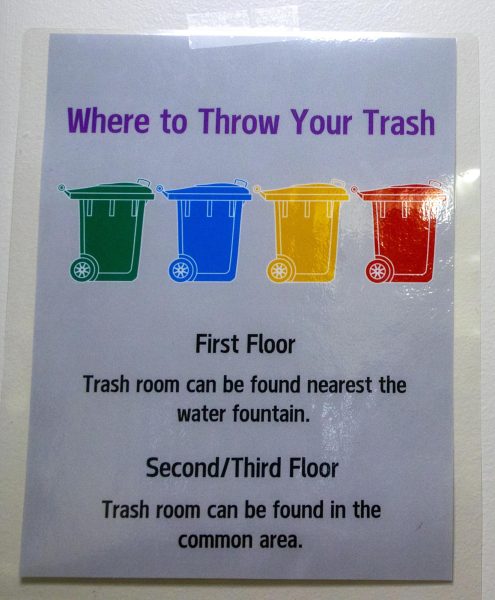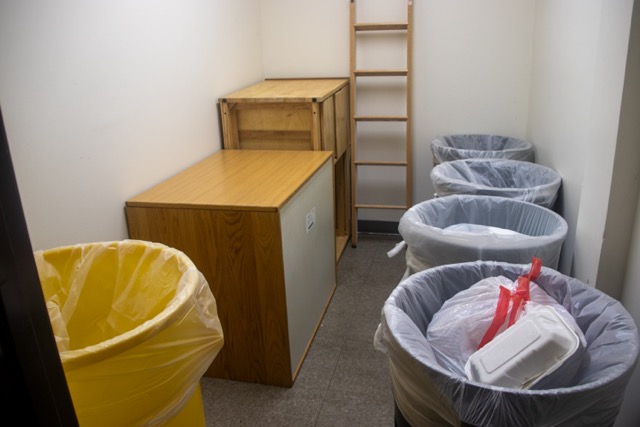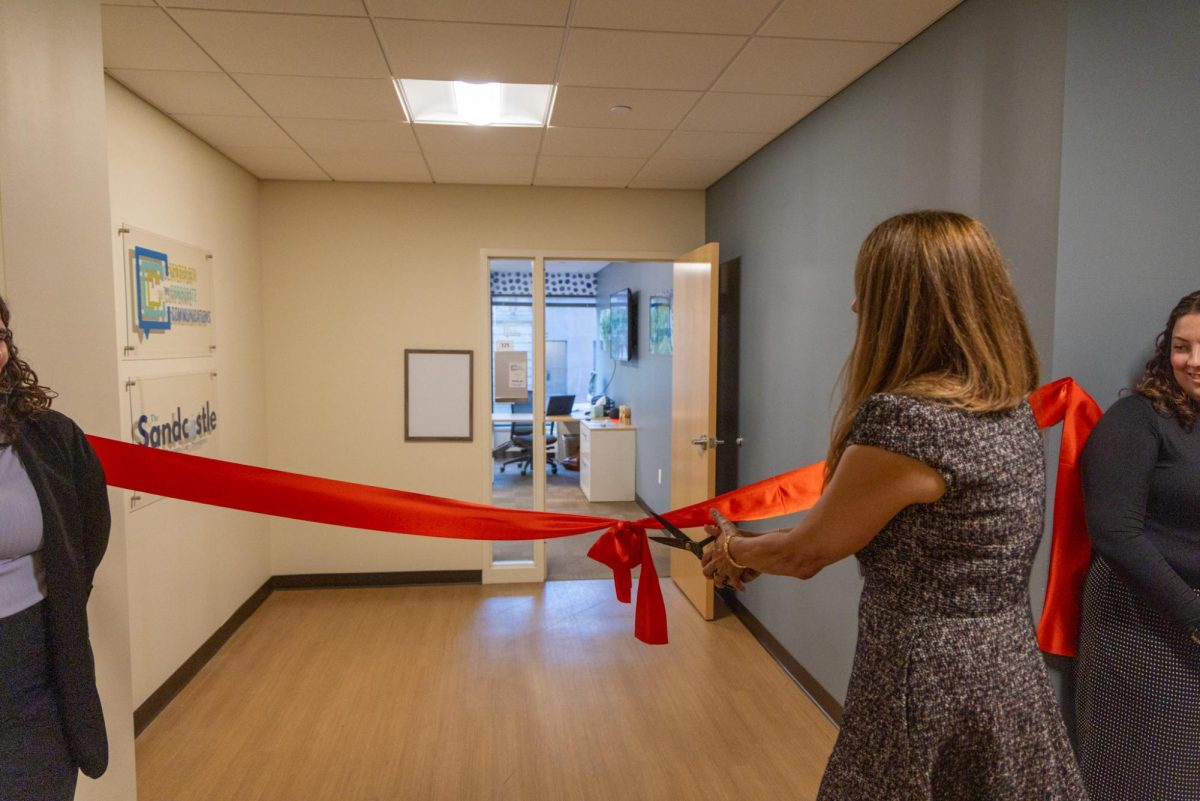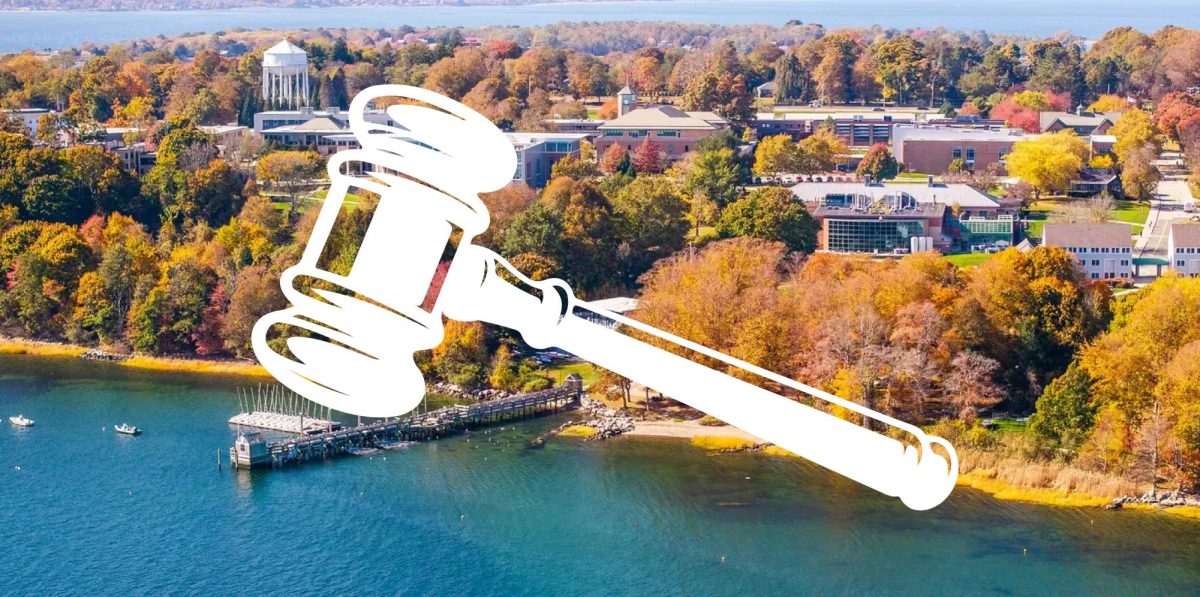As many have noticed, Roger Williams University has removed dumpsters from several residence halls as part of a campus-wide initiative to improve the outdoor environment, according to John Amitrano, Assistant Vice President for Facilities and Capital Projects.
Dumpsters previously located outside Stonewall Terrace, Willow, and Cedar have been replaced by trash collection rooms located inside the respective buildings. The decision, Amitrano explained, is part of an effort to improve the university’s aesthetic, address an ongoing pest problem, and lessen the environmental impact of waste collection.
“The containers have been removed as part of our overall efforts to improve the beauty and quality of the campus’ outdoor living environment,” Amitrano said. “They were unsightly, created a place for rodents to feed, and required over 4,000 pickups by diesel trucks per year, destroying the grounds, campus fixtures, interrupting pedestrian traffic, and polluting the atmosphere.”
Notably, Bayside remains the only residential area on campus where dumpsters are still in place. Amitrano clarified that this exception is due to staffing differences.
“They [Dumpsters] have remained at Bayside due to the fact that we do not have staff in the Bayside townhouses to remove waste as we do in all other campus buildings and residence halls,” he said.

A recent rumor has surfaced that the university’s contract with its trash collection agency had fallen through, promoting speculation about the missing dumpsters.
However, Amitrano dismissed the claims.: “MEGA remains our waste removal contractor,” he clarified.
When asked whether the change has added more strain on the facilities team, Amitrano said the staff had been realigned to manage the new system efficiently.
“Facilities staff were realigned to handle the transportation of waste from the buildings’ interior trash rooms to central sites at Facilities and Architecture,” he said.
As for the future, the university has no plans to bring the dumpsters back. This new system aims to reduce the environmental footprint of waste management of RWU with the hope of creating a cleaner, more sustainable campus.









